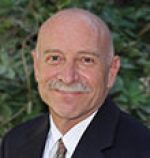The carbon-free future should not be confused with a utopian future. A zero-carbon world will include the difficult realities experienced in Texas in February 2021.
As shown in a graph of US EIA data, during the recent extreme cold event in Texas, wind and solar could not hold flat compared with their baseline the week before (4–8 February). Coal and nuclear remained mostly steady, while natural-gas producers ramped up supplies delivered to power plants by a factor of 4, helping people who were struggling to heat their homes. Natural gas may not receive well-deserved recognition from some quarters, and blackouts and loss of life still occurred, but our industry stepped up when people needed us most. Texas generates 25% of the wind power in the US and has more solar potential than 18 northern states combined, yet wind and solar simply failed when called upon. As the world attempts to go carbon-free, this reviewer hopes that more consumers will see the difference between results and public-relations promises.
It will take a legitimate technological step-change before an unsubsidized renewable energy source is capable of replacing reliable fossil fuels. Imagine if Sir Isaac Newton, with all his brilliance, had tried to be the first man to land on the moon. In 1720, the cumulative knowledge did not exist to allow that to happen, and, if he had tried, he could have spent the entire British treasury and still failed. By standing upon the shoulders of giants like Newton, others were able to reach the moon 250 years later. Step-change technological breakthroughs happen when their time has come, not when mandated by political pressure.
Until you hear that commercial fusion reactors are online or that low-cost, grid-scale electricity storage made from commonplace materials can handle a 10-day cold snap or heat wave, there is no need to hang up your pipe wrenches. Fossil fuels will remain the most energy-dense, cost-effective, reliable energy source until an extraordinary breakthrough creates a better alternative.
The three papers selected for this feature demonstrate the continued critical role of gas production, and innovation therein, in the necessary daily role of supplying the world’s energy needs. One discusses means of exploiting stranded offshore gas reservoirs; the second details an Eagle Ford cyclic-gas-injection enhanced-oil-recovery effort; and the third focuses on the fracturing interference of multiwell pads in shale gas reservoirs.
Reference
Wilson, Scott. 2021. “EIA Texas Power Generation Data, February 2021.”
This Month’s Technical Papers
Economic Comparison of Alternatives for a Stranded Offshore Gas Reservoir
Cyclic Gas Injection EOR in Eagle Ford Can Increase Estimated Ultimate Recovery
Study Evaluates Fracturing Interference for Multiwell Pads in Shale Gas Reservoirs
Recommended Additional Reading
SPE 200468 Hydraulic-Fracturing Test Site Phase-2 Enhanced-Oil-Recovery Pilot: Huff ’n’ Puff Pilot in the Permian Midland Basin by Shadi Salahshoor, Gas Technology Institute, et al.
SPE 202448 Unconventional Gas Development in Queensland, Australia: How Well Does It Align With the Golden Rules of Gas? by Katherine Witt, The University of Queensland, et al.
SPE 203208 Underbalanced Well Intervention to Re-Enter a Dead Well Changed the Future Dynamics of the Largest Gas Field in Pakistan—A Successful Pilot Project by Qasim Ashraf, Weatherford, et al.

Scott J. Wilson, SPE, is a senior vice president for Ryder Scott in Denver. He specializes in well-performance prediction and optimization, reserves appraisals, simulation studies, custom software development, and training. Wilson has worked in all major producing regions in his 30-year career as an engineer and consultant with Arco and Ryder Scott. He served as cochairperson of the Reserves and Economics Technology Interest Group and chairperson of the Denver Section of the Society of Petroleum Evaluation Engineers and currently serves on the JPT Editorial Review Committee. Wilson holds a BS degree in petroleum engineering from the Colorado School of Mines and an MBA degree from the University of Colorado. He holds four patents and is a registered professional engineer in Alaska, Colorado, Texas, and Wyoming. Wilson can be reached at scott_wilson@ryderscott.com.

